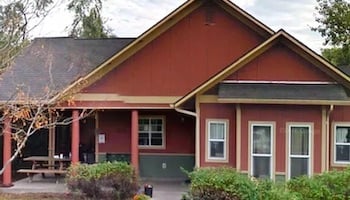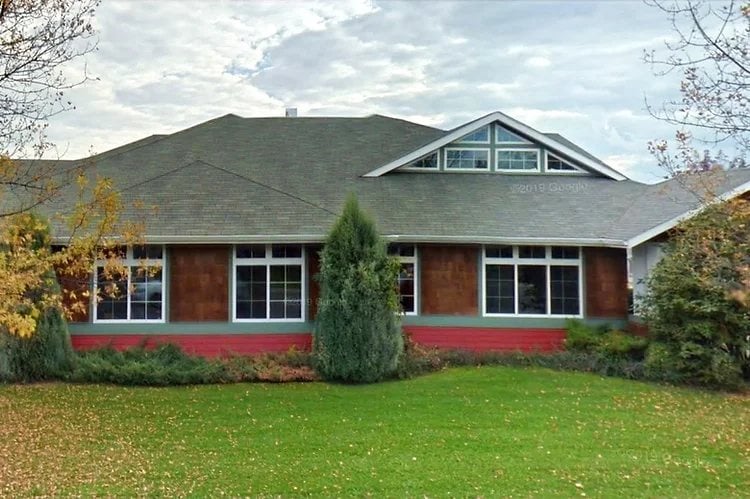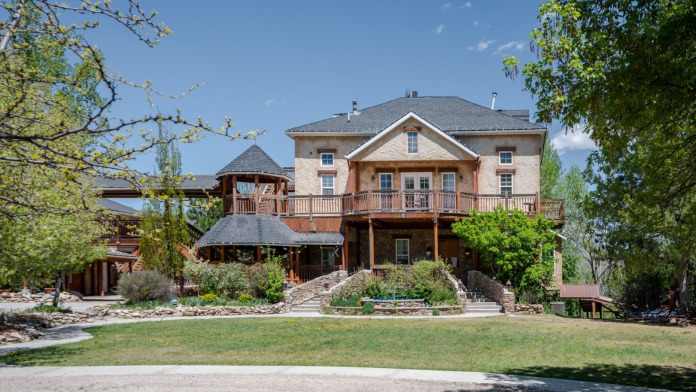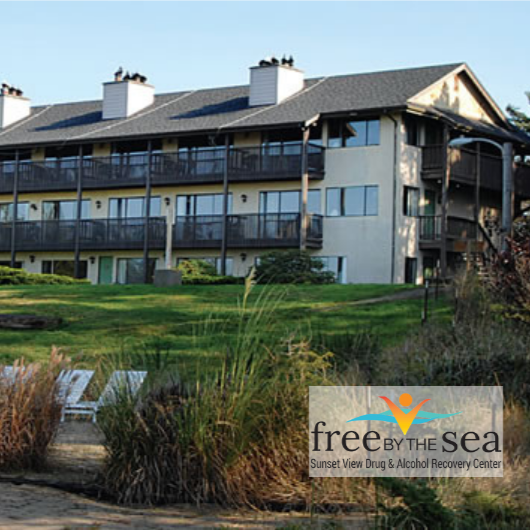These guys are awesome, everyone cares, and the staff is great. I learned a lot there and formed some amazing friendships. Most importantly, I'm still sober after one year and a half!!
About Recovery Center Missoula
For those looking for addiction treatment in Montana you can find support at Recovery Center Missoula. This substance use treatment facility in Missoula combines expert care with a peaceful setting to help individuals break free from substance use disorders. The center offers medication assisted treatment (MAT), residential housing, therapy and community support. This comprehensive approach ensures each client’s recovery is personalized with continuous care and encouragement throughout their journey.
24/7 Residential Care
The residential treatment at Recovery Center Missoula offers 24/7 support. The facility supports clients struggling with addictions to substances like alcohol, benzodiazepines, opioids, marijuana and stimulants. Therapies like cognitive behavioral therapy and motivational interviewing along with holistic approaches such as yoga and mindfulness help clients address addiction from all aspects. Clients with severe addictive behaviors are taken through the withdrawal process while being closely observed by medical practitioners.
Healing happens in a beautiful, serene environment with natural surroundings. The facility’s location in Missoula provides an ideal space for clients to meditate on their recovery using outdoor activities to help their journey.
Aftercare for Lifelong Sobriety
When treatment ends, the care doesn’t stop. Recovery Center Missoula places a strong emphasis on aftercare, providing continued support and resources to help individuals maintain their sobriety and keep moving forward.
Latest Reviews
Rehab Score
Location
Other Forms of Payment
Private insurance refers to any kind of healthcare coverage that isn't from the state or federal government. This includes individual and family plans offered by an employer or purchased from the Insurance Marketplace. Every plan will have different requirements and out of pocket costs so be sure to get the full details before you start treatment.
Self-pay involves paying for treatment out of your own pocket. You can use savings or credit, get a personal loan, or receive help from family and friends to fund your treatment. If you don't have insurance or your insurance plan doesn't cover a specific program, self-pay can help ensure you still get the care you need.
Financial aid can take many forms. Centers may have grants or scholarships available to clients who meet eligibility requirements. Programs that receive SAMHSA grants may have financial aid available for those who need treatment as well. Grants and scholarships can help you pai for treatment without having to repay.
Military members, veterans, and eligible dependents have access to specific insurance programs that help them get the care they need. TRICARE and VA insurance can help you access low cost or no cost addiction and mental health treatment. Programs that accept military insurance often have targeted treatment focused on the unique challenges military members, veterans, and their families face.
Medicaid is a state based program that helps lower-income individuals and families pay for healthcare. Medicaid covers addiction treatment so those enrolled can use their coverage to pay for rehab. When a program accepts Medicaid the client often pays very little or nothing out of their own pocket.
Addiction Treatments
Levels of Care
Outpatient programs are for those seeking mental rehab or drug rehab, but who also stay at home every night. We understand that rehab treatment is just the beginning of your recovery experience. Continued care is provided after you complete the intensive phase of your rehab treatment and may include groups or individual sessions from one to three times per week.
Recovery Center Missoula’s inpatient program is individualized, intense, and focused on you and your recovery. Daily programming takes place 10 – 12 hours per day, 7 days per week, in a safe and structured environment. The program length varies and is dependent upon your individual treatment needs. They do not subscribe to a “one size fits all” model.
Intensive Outpatient Programs (IOP) are for those who want or need a very structured treatment program but who also wish to live at home and continue with certain responsibilities (such as work or school). IOP substance abuse treatment programs vary in duration and intensity, and certain outpatient rehab centers will offer individualized treatment programs.
A successful drug intervention in Montana requires careful collaboration between family members and intervention services. An intervention specialist helps the individual understand how their substance abuse is affecting themselves and others and understand how treatment can help. This professional may be certified as an interventionist or possess other mental health qualifications. They walk everyone through the intervention step by step, then provide follow-up services for treatment.
Often referred to as "day treatment," a partial hospitalization program (PHP) provides structured therapy and support while allowing you to return home each day. PHP treatment is often used as a short-term alternative to inpatient hospitalization or a step-down option after a residential program. With a minimum commitment of 20 hours per week for an average of 90 days, PHP treatment often provides relapse prevention, medication management, and behavioral therapy services. Most providers offer coverage for PHP treatment.
Addiction alters neurochemistry and blocks the brains ability to produce chemicals necessary for a sense of well-being. Cravings are the physical manifestation of this altered brain chemistry and emotional addiction to the substance. Medically monitored administration of medications will serve to diminish cravings and begin neurochemical re-balance and ease the discomfort of withdrawal. Detoxification services are provided as a part of your overall treatment continuum and are not provided as a separate, stand alone service.
Treatments
The goal of treatment for alcoholism is abstinence. Those with poor social support, poor motivation, or psychiatric disorders tend to relapse within a few years of treatment. For these people, success is measured by longer periods of abstinence, reduced use of alcohol, better health, and improved social functioning. Recovery and Maintenance are usually based on 12 step programs and AA meetings.
A comprehensive drug rehab in Montana treats the entire person. Treatment methods address all the underlying causes of addiction and give the individual the tools they need to live a healthy, drug-free life.
Many of those suffering from addiction also suffer from mental or emotional illnesses like schizophrenia, bipolar disorder, depression, or anxiety disorders. Rehab and other substance abuse facilities treating those with a dual diagnosis or co-occurring disorder administer psychiatric treatment to address the person's mental health issue in addition to drug and alcohol rehabilitation.
Opioid rehabs specialize in supporting those recovering from opioid addiction. They treat those suffering from addiction to illegal opioids like heroin, as well as prescription drugs like oxycodone. These centers typically combine both physical as well as mental and emotional support to help stop addiction. Physical support often includes medical detox and subsequent medical support (including medication), and mental support includes in-depth therapy to address the underlying causes of addiction.
Substance rehabs focus on helping individuals recover from substance abuse, including alcohol and drug addiction (both illegal and prescription drugs). They often include the opportunity to engage in both individual as well as group therapy.
Programs
Adult rehab programs include therapies tailored to each client's specific needs, goals, and recovery progress. They are tailored to the specific challenges adult clients may face, including family and work pressures and commitments. From inpatient and residential treatment to various levels of outpatient services, there are many options available. Some facilities also help adults work through co-occurring conditions, like anxiety, that can accompany addiction.
Young adulthood can be an exciting, yet difficult, time of transition. Individuals in their late teens to mid-20s face unique stressors related to school, jobs, families, and social circles, which can lead to a rise in substance use. Rehab centers with dedicated young adult programs will include activities and amenities that cater to this age group, with an emphasis on specialized counseling, peer socialization, and ongoing aftercare.
Recovery is most successful when clients feel accepted and validated by their peers and treatment providers. Facilities that offer LGBTQ-inclusive programming are committed to creating a safe space where everyone can grow and recover without fear of judgment or discrimination. They will have dedicated policies in place to create a safe and supportive environment that fosters free expression.
Serving in the military is both mentally and physically challenging, and can result in trauma that persists even after combat ends. Military programs are tailored to the specific and often complex needs of active duty personnel, veterans, and military families. Clients often access these programs through the U.S. Department of Veterans Affairs (VA).
Clinical Services
Cognitive Behavioral Therapy (CBT) is a therapy modality that focuses on the relationship between one's thoughts, feelings, and behaviors. It is used to establish and allow for healthy responses to thoughts and feelings (instead of unhealthy responses, like using drugs or alcohol). CBT has been proven effective for recovering addicts of all kinds, and is used to strengthen a patient's own self-awareness and ability to self-regulate. CBT allows individuals to monitor their own emotional state, become more adept at communicating with others, and manage stress without needing to engage in substance abuse.
Dialectical Behavior Therapy (DBT) is a modified form of Cognitive Behavioral Therapy (CBT), a treatment designed to help people understand and ultimately affect the relationship between their thoughts, feelings, and behaviors. DBT is often used for individuals who struggle with self-harm behaviors, such as self-mutilation (cutting) and suicidal thoughts, urges, or attempts. It has been proven clinically effective for those who struggle with out-of-control emotions and mental health illnesses like Borderline Personality Disorder.
Group therapy is any therapeutic work that happens in a group (not one-on-one). There are a number of different group therapy modalities, including support groups, experiential therapy, psycho-education, and more. Group therapy involves treatment as well as processing interaction between group members.
In individual therapy, a patient meets one-on-one with a trained psychologist or counselor. Therapy is a pivotal part of effective substance abuse treatment, as it often covers root causes of addiction, including challenges faced by the patient in their social, family, and work/school life.
Trauma therapy addresses traumatic incidents from a client's past that are likely affecting their present-day experience. Trauma is often one of the primary triggers and potential causes of addiction, and can stem from child sexual abuse, domestic violence, having a parent with a mental illness, losing one or both parents at a young age, teenage or adult sexual assault, or any number of other factors. The purpose of trauma therapy is to allow a patient to process trauma and move through and past it, with the help of trained and compassionate mental health professionals.
Couples therapy is a form of talk therapy. The goal is to relieve distress in the relationship and improve interactions between the two partners. This often involves learning ways to manage feelings, communicate, and resolve conflict.
Amenities
-
Residential Setting
-
Private Rooms
Staff
Bob Lopp
CEO
Cory DeStein, LPN
Chief Administrative Officer
Aubrey Reed, MA, MSW, LCSW,PMH-C
Chief Clinical Officer
Patrick Maidman, MD
Medical Director
Callie Holleran, RN
Director, Nursing
Keri Stephanoff, LCSW, LCPC, LBA, BCBA, CMHPP
Director, CFSN, MH Outpatient, Day Treatment, Case Management
Amberlee Jorgenson, LCPC
Director, PACT/MACT, PATH, Residential Group Home
Brittany Blair
Director of 988 Suicide & Crisis Lifeline
Theresa Marshall
Director, Human Resources
Colter Schilling
Director, Information Services
Ryan Bailey
Director, Support Services
Contact Information
1201 Wyoming Street
Missoula, MT 59801









